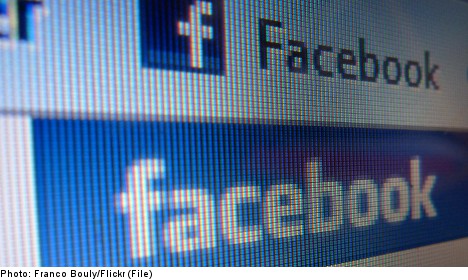The remarks, which have not been made public, were of a “violent and at times racist nature” and were discovered on a Facebook group entitled ‘Forum police-info.com’, according to a source close to the investigation.
The group, which has now been closed, is described as a “non-official” forum for France’s national and local police force.
The offensive comments are believed to be linked to the recent unrest in the Paris suburb of Trappes, TFI reported on Tuesday.
Riots erupted over the weekend after a man was detained for allegedly attacking a police officer who had stopped his wife for wearing a full-face veil – a practice that has been banned in France since 2011.
The police must be exemplary
The latest allegations of racist comments which appear to come from a member of France's police force is likely to further stoke tensions between youths and police.
Under the direction of the Ministry of the Interior, the Inspector General of France’s national police force (IGPN) will now try to identify the author of the comments.
“The investigation will determine if police made these remarks, in which case it is unacceptable and disciplinary action will be taken. But we must be extremely careful and find out in what context these remarks were made,” spokesperson from the Interior Minister Pierre-Henry Brandet was quoted as saying by TF1.
“The police must be exemplary, whatever the circumstances. An exemplary nature is essential and indispensable if we want to re-establish or rekindle the bond of trust that should unite our security forces and citizens,” said Brandet.
Police actions are often the trigger for unrest in France's working-class suburbs, as seen in 2005 when weeks of rioting broke out after the deaths of
two teenage boys in the Paris suburb of Clichy-sous-Bois.
The two were electrocuted when they climbed into an electricity substation as they tried to escape police chasing them.
Riots last year in the northern city of Amiens were set off by police identity checks.
Police operations spark the violence
Critics have described frequent identity checks in immigrant neighbourhoods as "police harassment," and studies have shown that people of African and Arab descent can face up to 10 times more spot ID checks than white people.
"Every time there is urban violence, it's linked to a police operation. This shows to what extent relations between residents of working-class
neighbourhoods and police forces are problematic," said Veronique Le Goaziou, a sociologist and expert on urban violence in France.
A few kilometres (miles) from the Chateau de Versailles, Trappes is a poor city of 30,000 surrounded by wealthy neighbours. In 2010, half the households lived on less than €13,400 ($17,600) a year and unemployment was at 15 percent.
"This is a terrifyingly common situation," said sociologist Michel Kokoreff. "We are in an area that has problem after problem, where people have a profound feeling of abandonment."
That the latest unrest was set off in part by the ban on full-face veils underscores the increasingly tense ties between authorities and the Muslim community, observers say.
"Tensions are moving into the field of Islam," Kokoreff said.
The veil ban, introduced in 2011, has outraged many in France's Muslim community, which at an estimated four million is western Europe's largest Muslim minority.
Officials say more than 700 women have been stopped since the ban was introduced.
Muslims feel persecuted
The growing visibility of French Muslims has also sparked a backlash from nationalists and has been a key factor in the increasing popularity of the far-right National Front.
"For several years there has been a rise in the feeling of persecution among non-Muslims, who have the impression that Islam is imposing its views, and on the other side, among Muslims who have the impression they are always stigmatised," said religious anthropologist Dounia Bouzar.
And in some areas, including Trappes with its large Muslim population, radical Islamic groups have emerged and are fuelling tensions, she said.
"These new religious movements are feeding on inequality and frustration," she said. "When people feel like they have no place in society, (radical) Salafist discourse turns the situation around by giving them a feeling of power."


 Please whitelist us to continue reading.
Please whitelist us to continue reading.
Member comments